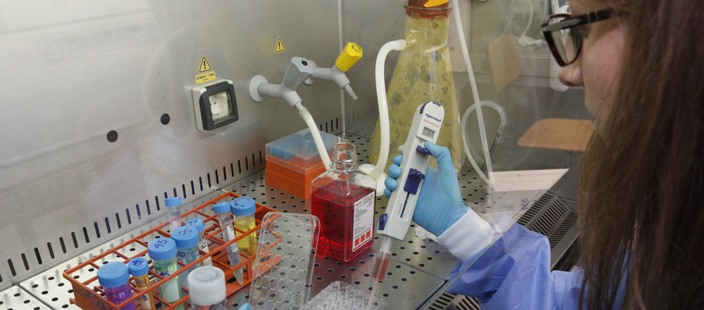From Telethon - San Raffaele research come new treatment prospects for a rare genetic diseases affecting the immune system, IPEX syndrome: in a study published in Science Translational Medicine, researchers from the San Raffaele-Telethon Institute for Gene Therapy (TIGET) in Milan, headed by Rosa Bacchetta, have shown, in the laboratory, the potential offered by gene therapy to treat this severe auto-immune syndrome.

What is IPEX?
IPEX syndrome, which only affects boys, causes an anomalous reaction of the immune system to a series of organs and tissues, in particular the skin, pancreas and the gastro-intestinal tract. From the early years of life, these children suffer from untreatable diarrhoea, neonatal diabetes and severe eczema of the skin, a result of the immune system constantly "attacking" these organs, which it wrongly identifies as pathogens, like viruses and bacteria.The underlying cause of this syndrome is a flaw in the gene FOXP3, responsible for the development of some of the cells that make up the immune system, the T regulatory lymphocytes, which control autoimmune reactions. When these cells do not function correctly, the immune system attacks the body.
The only cure currently available to children with IPEX syndrome is a bone marrow transplant from a donor, which makes it possible to replace all the cells of the patient's immune system with healthy cells. Unfortunately, however, not all patients can count on a compatible donor, and it is these patients who could benefit from the treatment approach proposed by the research group headed by Rosa Bacchetta.
Tiget researchers have shown in the laboratory that gene therapy can be used to "teach" the patient's T lymphocytes to become T regulatory cells, i.e. those cells that do not function as a result of the genetic defect. Using the same technique that has allowed for the successful treatment of other immune system diseases such as Ada-Scid and Wiskott-Aldrich syndrome, scientists have supplied the T cells taken from patients with a healthy version of the gene FOXP3.To transfer the healthy gene, they used a virus rendered harmless yet still able to enter the cells and transfer its genetic inheritance to them. The healthy gene has proved able to turn the cells into perfectly functioning T regulatory cells, able to exercise proper control over the autoimmune system, even where an inflammation is present, with the further advantage that they are the patient’s own cells, and no type of rejection can therefore take place.
These results thus open up new prospects for treating IPEX syndrome, and the next objective on the researchers' list is to understand whether these "artificial" T regulatory cells, once injected into patients, are effectively able to control the symptoms of the disease. This approach could also be extended to other diseases of the immune system caused by various organs attacking themselves.This study was made possible thanks to funding from the Telethon Foundation (Tele10A4), the Ministry of Health (RF-2009-1485896) and the Seventh Framework Project of the European Community (Cell-PID).